Police Story (1985)
Directed by: Jackie Chan
Written by: Edward Tang, Jackie Chan
Starring: Brigitte Lin, Jackie Chan, Kwok-Hung Lam, Maggie Cheung
AKA GING CHAT GOO SI
Hong Kong
AVAILABLE ON BLU-RAY: 20TH AUGUST, from EUREKA ENTERTAINMENT’S ‘JACKIE CHAN’S POLICE STORY AND POLICE STORY 2’ BOXSET
RUNNING TIME: 105 mins [Japanese release]/ 100 mins [Hong Kong release]/ 92 mins [US New Line cut]/ 84 mins [first US release]
REVIEWED BY: Dr Lenera, Official HCF Critic
The Hong Kong Police Force plans a major undercover sting to arrest crime lord Chu Tao. Inspector Chan Ka-Kui is part of the operation, along with undercover officers stationed in a shanty town. However, the criminals spot the police and the ensuing car chase cuts through the town. Ka-Kui follows on foot as the drug lord attempts to escape in a double-decker bus. He arrests Tao, but is reprimanded by Superintendent Li for letting the operation get out of hand. His next assignment is to protect Tao’s secretary, Selina Fong, who plans to testify in court about Chu Tao’s illegal activities, but the job gets in the way of his relationship with his girlfriend May….
I would imagine that not just me but many other Hong Kong movie lovers had all but resolved themselves to the fact that Blu-ray was not going to be much of a home for these films, particularly those from its Golden Age -roughly the 1980’s with a little bit on either side. But then along come Eureka Entertainment, not too long after their release of Drunken Master, announcing releases of the first two Police Story films, and soon after that City Hunter and the two Project ‘A’s – and suddenly we’re excited again. Many Jackie Chan fans would claim Police Story, which mixes cop thriller, martial arts and comedy, as his best work, and the man himself would agree. Me? – well, I’m most certainly a big fan of the film, but I personally think four or five other of his other movies just about top it, while the first sequel Police Story 2 ranks about equal. This is probably a controversial opinion. Every time I watch Police Story, I am blown away by the incredible action and laugh at the comedy, but I do think it sags a bit in the middle as a lot of Chan’s self-directed projects do, and the opening and ending are so great that the rest of the film suffers a bit by comparison. Don’t get me wrong though, it’s still a classic and might be the best film to see to get an overview of Chan’s abilities and melding of action and comedy because he packs so much stuff into it. When Chan finally broke into the US box office with Rumble In The Bronx in 1997, he stunned audiences and critics – but he would have stunned them even more if he he’d done it in 1985, when he was at the peak of his skills. There are things he does in this film that you watch – and then watch again because you wander if you saw things right.
It came about because in 1985 Chan made an American cop thriller called The Protector, which could have almost starred almost anyone as it failed to allow Chan to do his thing. Chan disliked it so much that he heavily re-edited it, cutting, altering and adding scenes, for its Hong Kong release, then hit upon the idea of doing a cop thriller his way the following year. It was given the generic title Police Story so it was harder for producers to rush out cheap copies before its release as they often did of his films, though it was called Glass Story by the crew because of the amount of glass shattered, and it wasn’t ordinary stunt glass but ‘sugar glass’, which looked more realistic but caused more injuries. It sure was a dangerous production. Chan got burns on his hands during the slide down a pole because they plugged the wrong lights in, and also broke two vertebrae and dislocated his pelvis when he crashed through the glass and light display, while many others, including Maggie Cheung who got kicked down some stairs, were badly injured throughout, something Chan wanted to show more of on the outtakes, but was over-ruled. The film was a smash at the Hong Kong box office, and video releases in the west increased Chan’s cult following and bits from the film appeared in Rapid Fire, Tango And Cash, and Bad Boys 2. The Japanese saw a version that was five minutes longer, with a longer introduction before the shanty town sequence and a conclusion where our hero is arrested for taking the law into his own hands. The first US version entitled Police Force lost sixteen minutes, mostly comedy, and had a different score, while a later release from New Line who’d released sadly altered versions of some of Chan’s films in cinemas,was longer at 92 minutes, but still lost some humour and had yet another score. Both versions cut the telephone scene!
The beginning and end sequences are among the top in action cinema. FACT! We open with a police operation to catch Chu Tao the drug lord, and when it starts to go wrong we have an intense shootout, than the cops drive through a shanty town, pretty much destroying it [don’t worry, it was scheduled for demolition anyway]. It’s not over though, because the crooks get on a bus, so what does Chan do? He hooks an umbrella on to the back of the bus and hangs on for dear life, then – he’s knocked off and takes a short cut so he can then stand in the bus’s way, the driver breaks, and, in a shot which always gobsmacks me, you can actually see two stuntmen crashing through the front window on to the road below and being visibly injured. Actually the driver broke too early so the stuntmen missed hitting the specially prepared car that was their intended target, but it really does show how much of Hong Kong movie making was on the edge. Ka-Kui then has to guard Tao’s secretary, Selina Fong, who’s going to testify in court about Chu. She doesn’t think she needs a bodyguard, but when Ka-Kui gets one of his cop mates to pose as a knife-wielding assassin in the first of the film’s many comedy scenes and one which really is daft but funny in a stupid way [especially when Ka-Kui still struggles with his opponent even though he’s been knocked out] she suddenly changes her mind, a good thing too because real danger is soon upon them. Unfortunately his girlfriend May understandably doesn’t take too kindly to him spending so much time with this other woman, while Tao thinks up a plot to trap and frame Ka-Kui for murder. First time viewers will be pleased to know that it’s not just bad guys in British and American films who seem oblivious to the conveniency of just shooting their captives.
The jaw dropping climax, in which for ten minutes Chan battles the baddies in a shopping mall, is a brilliant, intense ballet of movement and violence. Stunt people fly everywhere, glass is endlessly shattered, stunning martial arts is mixed with plain old brawling, all the props you can find are put to good use, and it all finishes with that pole stunt, which Chan of course shows three times, and why shouldn’t he? It’s understandable why the rest of Police Story has serious trouble matching the bookending scenes. If you remove those there isn’t really that much action; two brief but undoubtedly exciting martial arts battles, the first of which has a simply amazing bit where Chan jumps into a car windscreen both feet first, kicking the man inside, and a small amount of chasing. Chan would spend so much time staging and perfecting his action scenes that his films often have less fighting than many other Hong Kong films. Some of the rest of the time is taken up with extended comedy sequences often inspired by Buster Keaton, The Three Stooges and Laurel and Hardy. These often slow the pace down considerably, but Police Story has much which always makes me laugh, from Chan having to answer several telephones all at once and getting tangled up in cord, to a riotous courtroom scene where Chu’s lawyer talks a load of nonsense replete with a toy bus to prove his client’s innocence and Ka-Kui thinks he is playing a tape recording of Selina describing her boss’s criminal activities but the wily moll has actually recorded her flirting with Chan [much sexual innuendo here!] and the poor policeman looks like an idiot, not to mention his girlfriend May. Chan just likes to throw in anything he thinks of. Everything seems to happen to Ka-Kui. At one point he steps in poo and does a dance to wipe it off while breakdance music is on the soundtrack, but at another point he becomes a poster boy for the force.
Chan tended to play virtually the same character is many of his films, and the Police Story films are no exception, though in this first film there’s a slightly harder edge to him. He’s a modest cop who always tries to do the right thing, but he certainly has his flaws like a certain arrogance concerning his long-suffering girlfriend May, and here he’s willing to seriously break the law, like taking his boss hostage, and he really looks like he could ‘lose it’ and go off the rails. Isn’t it unusual to see a Chan character really looking like he’s about to use the piece of broken glass in his hand? Of course he also happens to have amazing fighting skills and doesn’t think twice about risking his life, though he takes as much punishment as he dishes out, and is just as likely to succumb to a birthday cake in the face from the long-suffering May as fall off something or receive a kick from a bad guy. Their relationship seems very fraught but it’s mostly handled humorously, though writer Edward Tang nicely makes us understand both viewpoints. The plot is reasonably decent and even has a surprise or two the first time you see the film, though it noticeably struggles just a bit around the middle beneath Chan’s overload of ideas for gags. As with many of Chan’s movies, the writer would think up the basic story, Chan would describe the various action and comedy scenes he wanted, than the writer would go off and write his screenplay, making sure he incorporated the things Chan wanted – after which Chan would often think up more bits to put in while shooting.
Chan really is at the top of his game here; his physical prowess is miraculous, his choreography astounding, and his comedic timing astute. He was never a great actor, and never will be, but his combination of mugging and intense looks serves his character perfectly. Cute, adorable Maggie Chung and exotic, dangerous Brigitte Lin [usually in period movies] are a nicely contrasting pair of leading ladies. Both of their characters get bashed and thrown about almost as much as Chan. Chung would return, as would Bill Tung as Chan’s somewhat bumbling but wisecracking boss. He and Chan actually have as much chemistry than Chan and Chung do. The score by Michael Lai and Tang Siu Lam is mostly based on one main theme, varied to emphasise either action, tension or humour. The comedy music is rather over the top but it’s a catchy theme and Chan sings it [with words that are all about heroism], over the outtakes during the end credits. The thing about Police Story is that it really does contain much of Chan’s best work, even if the film itself could have done with a bit of tweaking here and there.
Rating: 









Police Story comes onto Blu-ray looking superbly sharp and detailed, and I only noticed when comparing that the old Hong Kong Legends DVD I had was cropped on all four sides. However, the image is a little darker. I must admit that my heart sank when I found that it was L’Immagine Ritrovata whom Fortune Star the owner of the movie got to do the restoration. For some reason, all their restorations come out with a distinct yellow tint and some of them, such as two Sergio Leone films, now look awful. Fortunately this is not the case with Police Story, aside from skin tones maybe looking a bit too brown. Eureka have provided no less than four audio options. I flicked between them and unsurprisingly found the original Cantonese mono track to be the most pleasing on my limited setup. The dialogue and background noises seem better balanced and the score is louder – though of course the Cantonese 5.1 track is louder overall. Then there are two dubbed options, the first and more familiar one a bit more faithful to the original if the subtitles are anything to go by.
The 105 minute Japanese Cut is closer in look to other versions of the film though has minor print damage. The new opening sequence in which one of the cops has his birthday is amusing, but I think the film is better when it goes straight into the police raid. The American Police Force Cut looks surprisingly good for a video transfer. Despite its 84 minute length, not as much is missing as you may expect. Scenes tend to be tightened, the only major omissions being the telephone scene and part of the court trial. It’s certainly not a travesty, and the dub might be the best out of the three, though it does suffer from its often cheap sounding, theme-less score. Why the distributors preferred this to the Hong Kong score is beyond me.
Eureka haven’t ported all the extras from the UK and USA, probably because of the involvement of Bey Logan with most of them. An explanation of this doesn’t really belong in this review, but information on this can be easily found elsewhere. We do have the extra bits in the Japanese version included separately, including even single shots! There’s also the good 20 minute Hong Kong Legends interview with Chan where he visits the real-life shopping mall and talks of his fear doing the pole stunt, how his films begin with the main set pieces being thought up before the script, and fails to convincingly explain why he does this crazy stuff in the first place.
Though I don’t quite think Police Story to be quite Chan’s best, it’s still in his top ten and the minor flaws I found with the presentation may not bother everyone, so this release together with Police Story 2 comes Highly Recommended.
SPECIAL EDITION DETAILS:
*1080p presentation sourced from the incredible new 4K restoration
*Four unique Audio options: Original Cantonese Mono audio track; Restored Cantonese 5.1; Restored English 5.1 dub track AND an additional audio track featuring an alternate English dub sourced from a rare Dutch VHS release of Police Story that has never been officially released on any other version of the film
*Newly translated English subtitles
*Police Story: The Japanese Cut – Originally released exclusively to Japanese home video, this extended cut of the film was transferred to HD from a film print in 2012 and makes its UK debut here with it’s original Cantonese audio and English subtitles for the first time ever
*Police Story: The Police Force Cut – A unique version of the film edited exclusively for the American home video market, featuring a unique dub track and electronic score
*Alternate and Deleted Scenes, including alternate opening and ending sequence
*Archival Interview with Jackie Chan
*“Jackie Chan Stunts” – Promotional trailer
*Trailers
*Collectors Booklet featuring new writing on the film and a selection of rare archival material

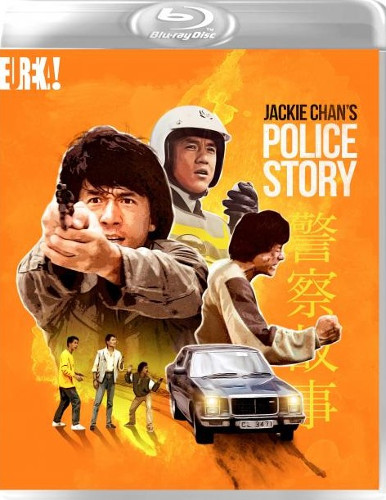
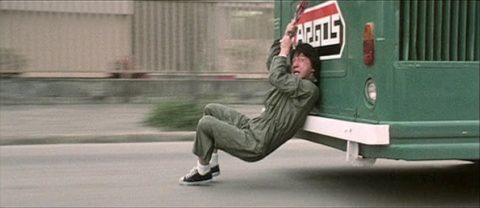
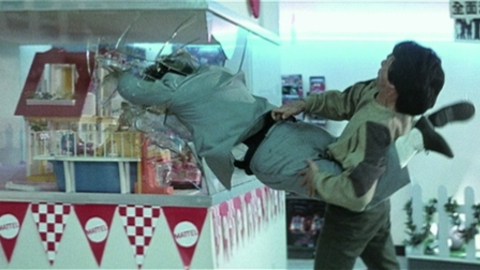

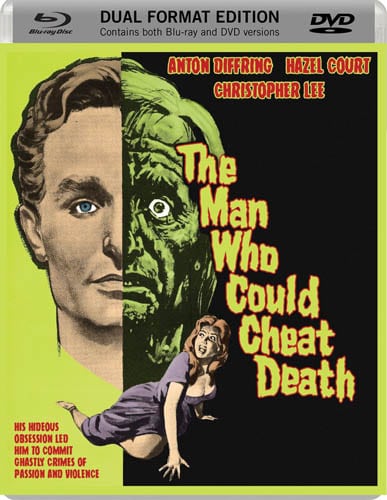
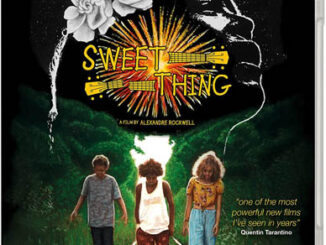
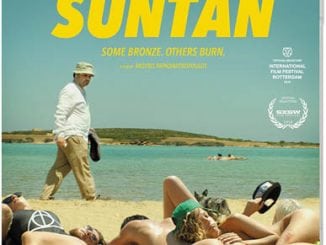
Be the first to comment